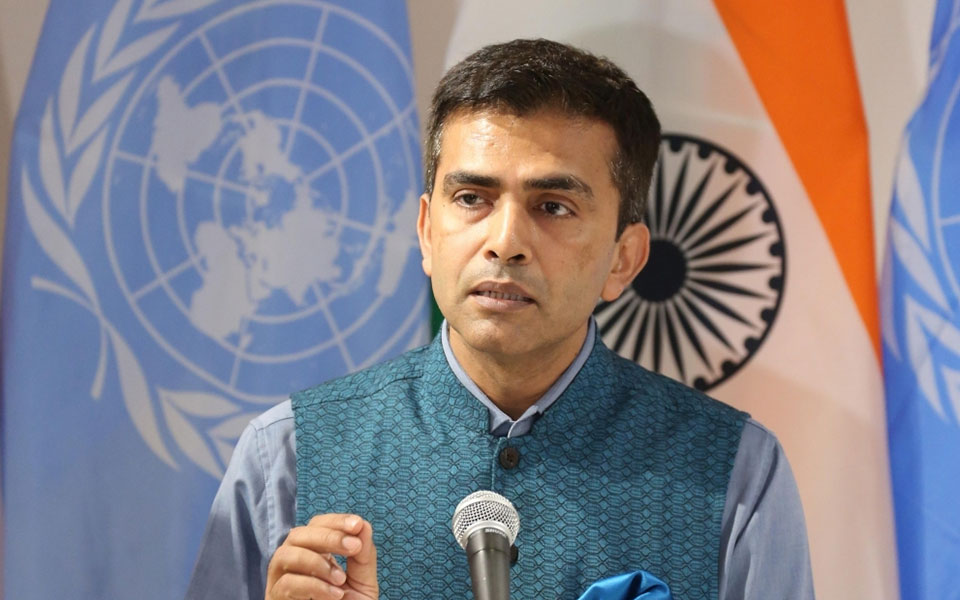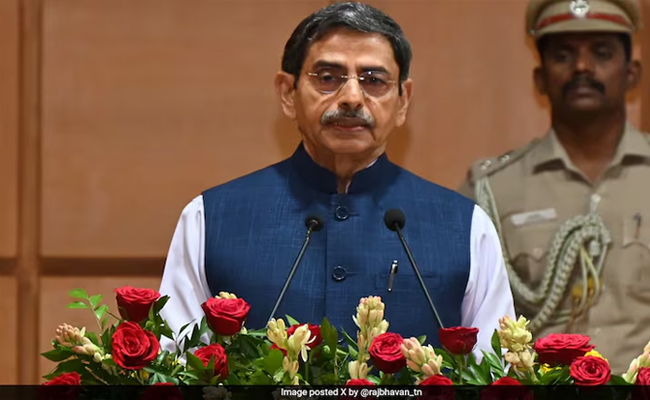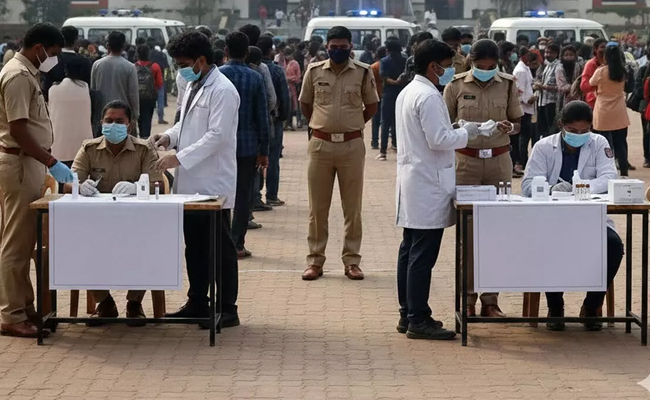New Delhi, June 14: India on Thursday rejected as "fallacious, tendentious and motivated" the first ever report on human rights in Kashmir released by the UN Office of the High Commissioner for Refugees (OHCHR).
"India rejects the report. It is fallacious, tendentious and motivated. We question the intent in bringing out such a report," External Affairs Ministry spokesperson Raveesh Kumar said in response to a question.
"It is a selective compilation of largely unverified information. It is overtly prejudiced and seeks to build a false narrative," Kumar said.
The 49-page report issued by the OHCHR "details human rights violations and abuses on both sides of the Line of Control, and highlights a situation of chronic impunity for violations committed by security forces", a statement issued from Geneva on Thursday said.
"The political dimensions of the dispute between India and Pakistan have long been centre-stage, but this is not a conflict frozen in time. It is a conflict that has robbed millions of their basic human rights, and continues to this day to inflict untold suffering," UN High Commissioner for Human Rights Zeid Ra'ad Al Hussein said in the statement.
Noting the continuing serious tensions in recent weeks, including those stemming from a series of incidents in Srinagar, he called on Indian security forces to exercise maximum restraint, and strictly abide by international standards governing the use of force when dealing with future protests, including ones that could well occur this coming weekend.
"It is essential the Indian authorities take immediate and effective steps to avoid a repetition of the numerous examples of excessive use of force by security forces in Kashmir," Zeid said.
It also called upon India to "urgently repeal" the AFSPA; establish independent, impartial and credible investigations to probe all civilian killings since July 2016 and all abuses committed by armed groups; and provide reparations and rehabilitation to all injured individuals and to the families of those killed in the context of security operations. Similarly, the PSA should be amended to ensure its compliance with international human rights law, and all those held under administrative detention should either be charged or immediately released.
According to the report, the UN Human Rights Office - which, despite repeated requests to both India and Pakistan over the past two years, has not been given unconditional access to either side of the Line of Control - "undertook remote monitoring to produce the report, which covers both Indian-Administered Kashmir and Pakistan-Administered Kashmir".
Among the issues highlighted in the report is the constitutional relationship of the two distinct territories of "Azad Kashmir" and Gilgit-Baltistan with Pakistan. The "Azad Kashmir" has effectively been controlled by Pakistan throughout its entire history. Pakistan's federal authorities also have full control over all government operations in Gilgit-Baltistan, and federal intelligence agencies are reportedly deployed across both regions.
The report said India should "urgently repeal" the Armed Forces (Jammu and Kashmir) Special Powers Act 1990 (AFSPA) and "establish independent, impartial and credible investigations to probe all civilian killings since July 2016 and all abuses committed by armed groups; and provide reparations and rehabilitation to all injured individuals and to the families of those killed in the context of security operations".
Stating that the report violates India's sovereignty and territorial integrity, Kumar, in his response, said that the entire state of Jammu and Kashmir is an integral part of India.
"Pakistan is in illegal and forcible occupation of a part of the Indian state through aggression. We have repeatedly called upon Pakistan to vacate the occupied territories," he said.
"The incorrect description of Indian territory in the report is mischievous, misleading and unacceptable. There are no entities such as 'Azad Jammu and Kashmir' and 'Gilgit-Baltistan'."
Stating that terrorism is the most egregious violation of human rights, the spokesperson said that yet the authors have conveniently ignored the pattern of cross-border terrorism emanating from Pakistan and territories under its illegal control.
"Cross-border terror and incitement is aimed at suppressing the will of the people of Jammu and Kashmir, disrupting its political and social fabric and undermining India's integrity," he stated.
"It is disturbing that those behind this report have chosen to describe internationally designated and UN-proscribed terrorist entities as 'armed groups' and terrorists as 'leaders'. This undermines the UN-led consensus on zero tolerance to terrorism."
Kumar also said that the motivated report deliberately ignores that fundamental rights and freedoms guaranteed under the Constitution to every Indian citizen, including in the state of Jammu and Kashmir, are protected also by an independent judiciary, human rights commissions, free and vibrant media and an active civil society.
He said India's protest and views in the matter have been conveyed unequivocally to the OHCHR.
"We are deeply concerned that individual prejudices are being allowed to undermine the credibility of a UN institution," he said.
"Such malicious reports cannot undermine the will of the people and the government of India to take all measures necessary to protect the sovereignty and territorial integrity of the country from cross-border terrorism," he added.
Let the Truth be known. If you read VB and like VB, please be a VB Supporter and Help us deliver the Truth to one and all.
New Delhi (PTI): Tamil Nadu Governor R N Ravi has been appointed West Bengal Governor and Lt Gen Syed Ata Hasnain (retd) named new Bihar Governor as part of major gubernatorial appointments effected by President Droupadi Murmu on Thursday night.
Ravi succeeds C V Ananda Bose, who resigned earlier in the day.
President Murmu has accepted Bose's resignation, a communique issued by her office said.
Kerala Governor Rajendra Vishwanath Arlekar will discharge the functions of Governor of Tamil Nadu, it said.
Vinai Kumar Saxena, Lt Governor of Delhi, has been appointed as Ladakh's LG in place of Kavinder Gupta, who has been named Himachal Pradesh Governor.
Taranjit Singh Sandhu has been named Delhi LG, the communique said.
Himachal Pradesh Governor Shiv Pratap Shukla has been made Telangana Governor in place of Jishnu Dev Varma, who has been appointed Maharashtra Governor.
Nand Kishore Yadav has been appointed as Nagaland Governor, the communique said.





